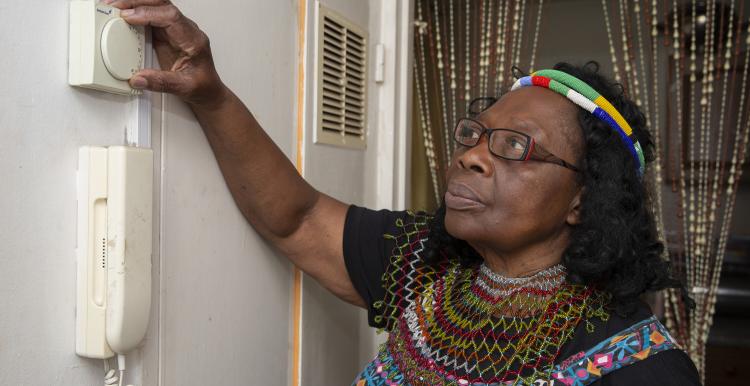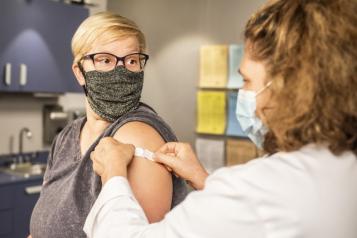Staying well this winter

Winter conditions increase our health risk, particularly for older people or those with long-term conditions and compromised immune systems.
Being cold can raise the risk of increased blood pressure, heart attacks and strokes. The cold, damp weather can aggravate existing health problems, making you more vulnerable to respiratory winter illnesses. But there are things you can do to stay well.
Top tips to stay well from the NHS
- Get your vaccines and boosters. Protect yourself and others by getting your COVID-19 booster and flu vaccination.
- Keep warm during the day. Wrap up in lots of layers of thin clothes even when you go to bed. Keep doors closed to block draughts. Try to heat rooms you regularly use to at least 18°C. Make sure you're getting the help you are entitled to with your heating costs.
- Keep moving. Move around indoors and try to get outside for a walk. Avoid sitting for more than one hour.
- Wrap up at night. Wear layers to bed, including socks. Use a hot water bottle or an electric blanket. Don't use a hot water bottle and electric blanket together. Keep your windows closed at night.
- Eat well. Ensure you eat a balanced diet with lots of seasonal fruit and vegetables. And try to eat at least one hot meal a day.
- Stay hydrated. Have at least one hot meal a day. Eating regular meals and drinking hot beverages can help you keep warm.
- Have your medication on hand. Ensure you have the right medicines at home in case you get poorly. Ask your pharmacist if you need clarification.
- Stop the spread of germs. Protect yourself and others by washing your hands with warm, soapy water, covering your mouth when you cough or sneeze, and wearing a mask in public spaces.
- Look after your mental health. The winter months can take a toll on our mental wellbeing, so you must look after your mental health just as you do your physical health. If you are feeling down, speak to someone – a friend, family member or healthcare professional, like your doctor.
Looking for mental health advice
We have advice articles on how to look after your mental health, for example:
How to access mental health support if you have gender, sexuality or relationship diversity.
If you get ill
- If you need medical help right now, call 111 or use NHS 111 online.
- If it is a real emergency and life-threatening, then you can call 999.
- If it's less urgent, contact your doctor or pharmacist. Find out how your pharmacy can support you.
Need more advice?
Want to learn more about how to look after yourself this winter? Check out these valuable resources:
NHS - Seasonal vaccinations and winter health
Age UK - How to keep warm and well in winter
Marie Curie - 16 tips on how to stay warm in cold weather
British Heart Foundation - Winter wellness: how to keep healthy and warm


